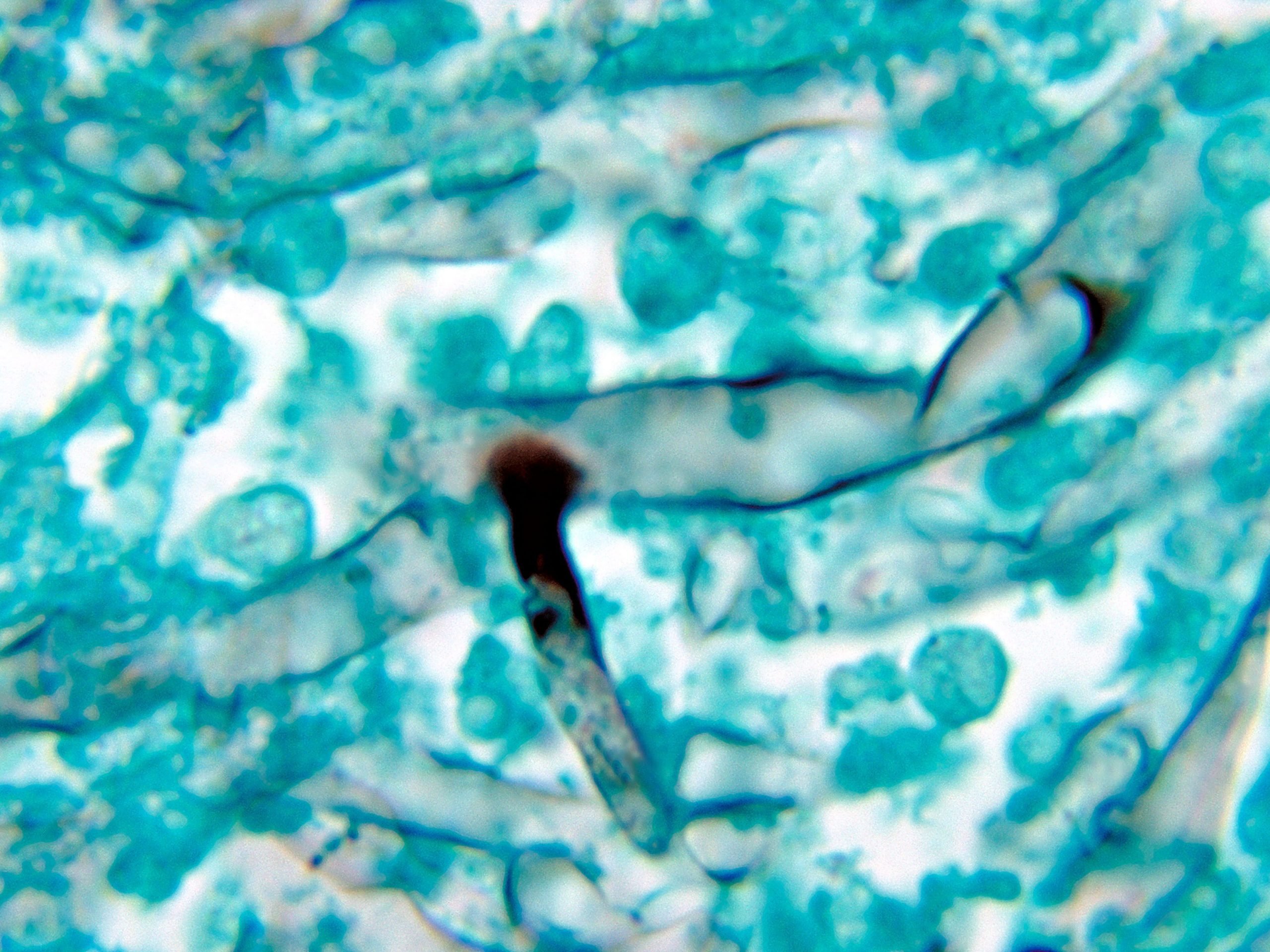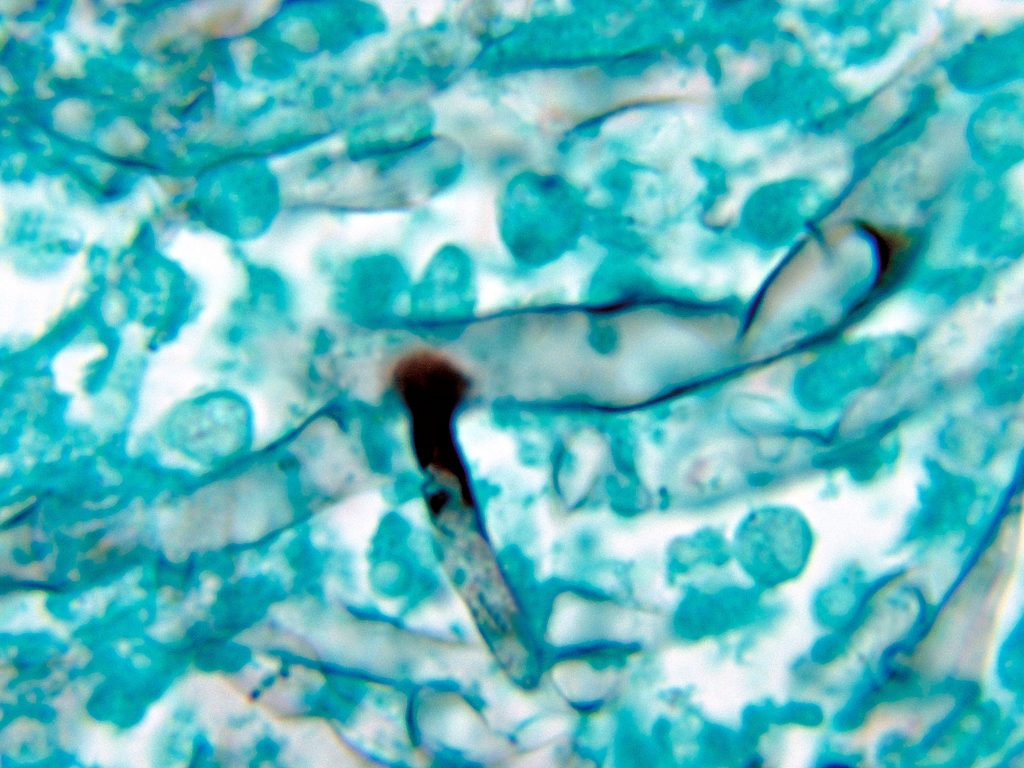
BSIP / Contributor/Getty Images
- Two states in India have declared the "black fungus" spreading in its hospitals an epidemic.
- The fungus, known as mucormycosis, affects the sinuses, brain, and lungs, and is life-threatening.
- This means India is now struggling with a second, concurrent epidemic – even as COVID deaths surge.
- Visit Insider's homepage for more stories.
India is now struggling with not one but two deadly diseases as black fungus infections continue to spread through its hospitals.
Two states in India – the northwestern state of Rajasthan and the southern state of Telangana– have declared the black fungus an epidemic, which means that all cases of black fungus must be logged and reported to the government.
Black fungus – or mucormycosis – is a life-threatening infection that has a 50% mortality rate, and requires all infected tissues to be removed for patients to have a fighting chance. Unfortunately, this has resulted in some patients losing eyes or part of their nasal tissue.
The emergence of this concurrent epidemic means that India must now contend with fast-spreading fungal infections – even as COVID cases in the country cross the 25 million mark.
The infection has been surfacing in former COVID patients, and doctors speculate that steroids – which are thought to be an effective way to treat severe cases of COVID-19 in India– may be suppressing the body's immune system, making those who were treated for COVID more likely to develop a black fungus infection.
India set a new record for the number of COVID deaths reported in one day - with 4,529 cases recorded on Tuesday. The country is attempting to control a surge in cases in its devastating second wave - that has overstretched its healthcare system, crippled its funeral services, and resulted in bodies being disposed of in the Ganges river.
There is currently no publicly available tally of black fungus infections in India, but states have reported troubling case numbers across the country. For example, a report from the BBC yesterday noted that the state of Maharashtra reported 1,500 active black fungus infections last week, while Gujarat saw around 900 cases in the last month.
According to CNBC, the Rajasthan government has ordered 2,500 vials of a drug used to treat black fungus after 100 infected people were sent this week to a special ward in the Sawai Man Singh hospital in Jaipur set up especially for black fungus infections.
To combat the rise in black fungus cases, dedicated facilities are sprouting up across the country to treat the disease. According to local news outlets Livemint and ANI, Chief Minister Arvind Kejriwal said on Thursday that three major hospitals in the nation's capital of Delhi - the Lok Nayak Jai Prakash Narayan Hospital, the Guru Teg Bahadur Hospital, and the Rajiv Gandhi Government General Hospital - will set up designated facilities on their premises to deal with this new epidemic.
This announcement was made after the capital recorded 185 new cases of black fungus infections across seven Delhi hospitals on Thursday, with over 100 cases currently being treated at the All India Institute of Medical Sciences in Delhi.
An article published on National Geographic noted that a black fungus infection may take root if immunocompromised individuals come into contact with fungal spores. The spores that cause this infection are part of a class of mold called mucormycetes that are commonly found in the soil and air. People can get infected by inhaling the fungal spores or if the fungus enters the skin through a cut, scrape, or burn.
According to the Centers for Disease Control and Prevention, early symptoms of mucormycosis include black lesions appearing on the nasal bridge or inside of the mouth, one-sided facial swelling, headache, nasal or sinus congestion, and a fever.
